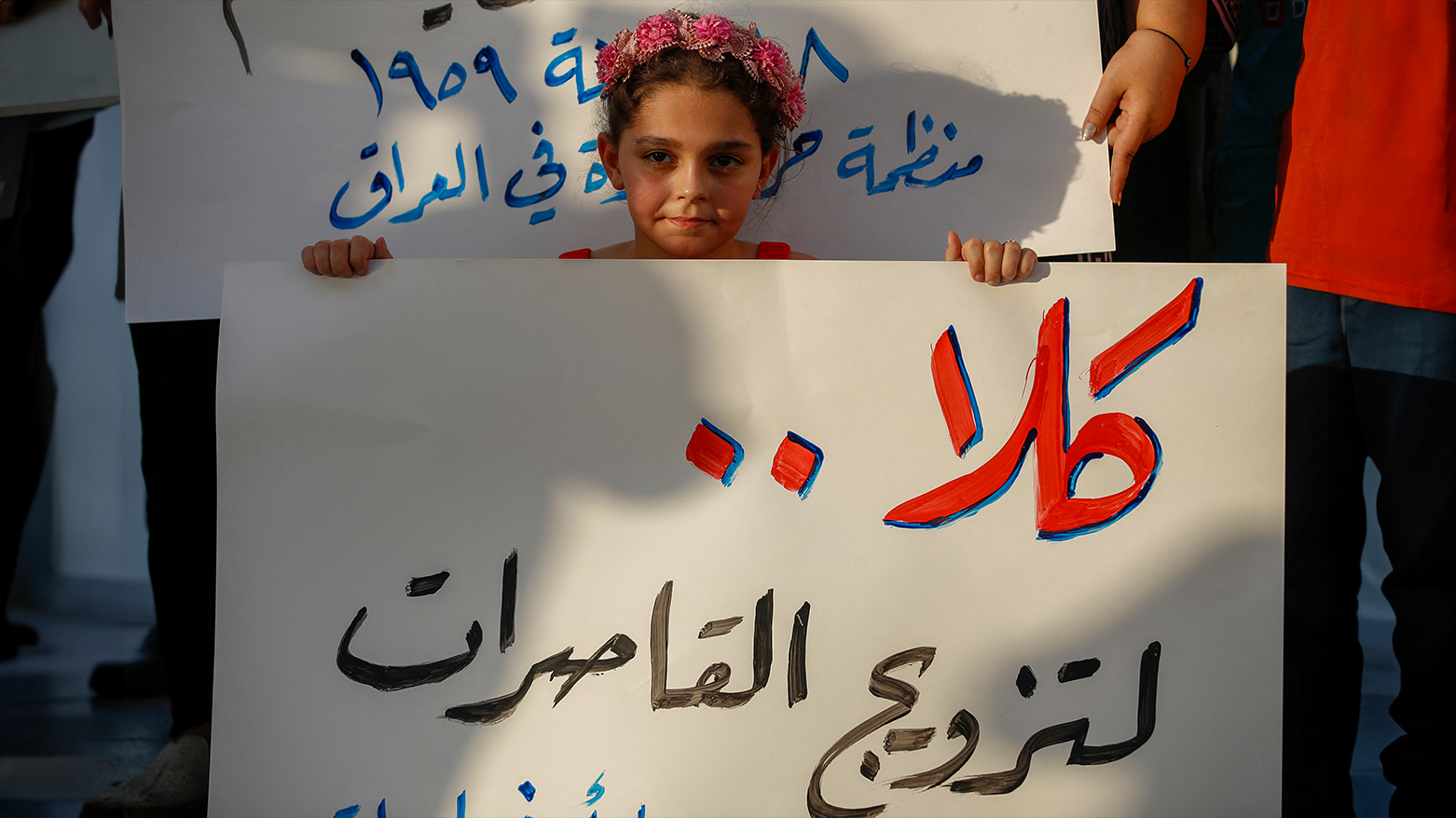Iraqi Parliament advances controversial amendment to legalize child marriage, sparking outcry
According to HRW, the proposed amendment would allow religious authorities to govern marriage and inheritance matters, potentially at the expense of the fundamental rights guaranteed under Iraq’s constitution and international law.

ERBIL (Kurdistan24) – The Iraqi parliament is moving forward with a contentious amendment to the Personal Status Law that could legalize child marriage and undermine women’s rights, prompting widespread concern from human rights organizations and activists.
The amendment, which had its first reading in parliament on August 4, 2023, is expected to undergo two more readings and a debate before a final vote.
According to Human Rights Watch (HRW), the proposed amendment would allow religious authorities to govern marriage and inheritance matters, potentially at the expense of the fundamental rights guaranteed under Iraq’s constitution and international law.
If passed, the amendment would permit girls as young as nine years old to be married, significantly rolling back protections for women and girls that have been hard-won over the years.
HRW has warned that the amendment would have devastating consequences, particularly for young girls.
"The Iraqi parliament’s passage of this bill would be a devastating step backward for Iraqi women and girls and the rights they have fought hard to enshrine in law," said Sarah Sanbar, an Iraq researcher at Human Rights Watch.
"Formally legalizing child marriage would rob countless girls of their futures and well-being. Girls belong in school and on the playground, not in a wedding dress."
The draft amendment would allow couples to choose whether the provisions of the Personal Status Law or specific Islamic schools of jurisprudence would govern their marriage contract.
This arrangement could lead to different legal regimes for different sects, further entrenching sectarianism in Iraq’s legal system and undermining the right to equality under the law for all Iraqis.
The Jaafari school of law, which many Shia Muslims follow in Iraq, allows for girls as young as nine and boys as young as 15 to be married.
In contrast, the current Personal Status Law sets the legal age for marriage at 18, or 15 with a judge’s permission based on the child’s "maturity and physical capacity." Even this lower threshold already contravenes international legal standards and best practices.
In addition to legalizing child marriage, the amendment would also authenticate unregistered marriages conducted by religious leaders, which are currently illegal under Iraqi law.
HRW reports that unregistered marriages are a loophole that has already enabled child marriage in Iraq, where the practice has been on the rise over the past two decades.
A March 2024 report by HRW found that 28 percent of girls in Iraq are married before the age of 18, with 22 percent of unregistered marriages involving girls under the age of 14.
The amendment would also strip away protections for women in divorce proceedings.
Under the existing Personal Status Law, if a husband requests a divorce, the wife has the right to remain in the marital home for three years at the husband’s expense, receive two years of spousal maintenance, and claim the current value of her dowry.
The proposed amendment would allow religious law to take precedence, potentially depriving women of these protections.
Women’s inheritance rights could also be further diminished under the proposed amendment. Under current law, daughters inherit a lower proportion of their parent’s wealth than sons.
However, under certain religious laws, daughters would inherit even less, and in cases where a family has no son, agricultural land could revert to the state rather than being inherited by daughters.
The amendment would also grant disproportionate power to religious authorities in setting the law. It stipulates that the Scholar Council of the Shia Endowment Office and the Fatwa Council of the Sunni Endowment Office would develop a "code of Sharia rulings on personal status matters" and submit it to the house of representatives within six months from the date of entry into force of the law.
This code would not be subject to parliamentary review or public scrutiny before becoming law, effectively removing democratic oversight.
The proposed amendment has sparked protests from Iraqi rights groups and activists, as well as opposition from more than 15 women parliament members from diverse political parties.
Similar attempts to amend the Personal Status Law in 2014 and 2017 were ultimately unsuccessful.
The amendment would violate several international human rights treaties to which Iraq is a party, including the Convention on the Elimination of All Forms of Discrimination against Women (CEDAW) and the Convention on the Rights of the Child.
These treaties obligate Iraq to protect the rights of women and children, including by prohibiting child marriage and ensuring that decisions about children in divorce cases are made in the best interests of the child.
"Iraqi parliamentarians should reject efforts to strip women and girls of their legal protections and refuse to undo decades of hard-won rights," Sanbar urged. "Failure to do so means current and future generations of Iraqi women will remain strangled by an oppressive patriarchal legal system."
As the amendment progresses through the legislative process, human rights organizations and activists are calling on the Iraqi parliament to uphold the rights of women and girls and reject this regressive change to the law.
